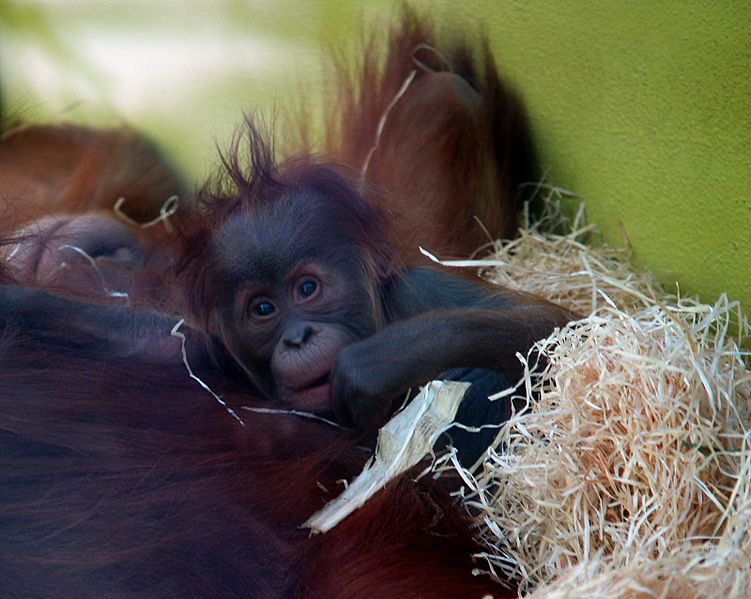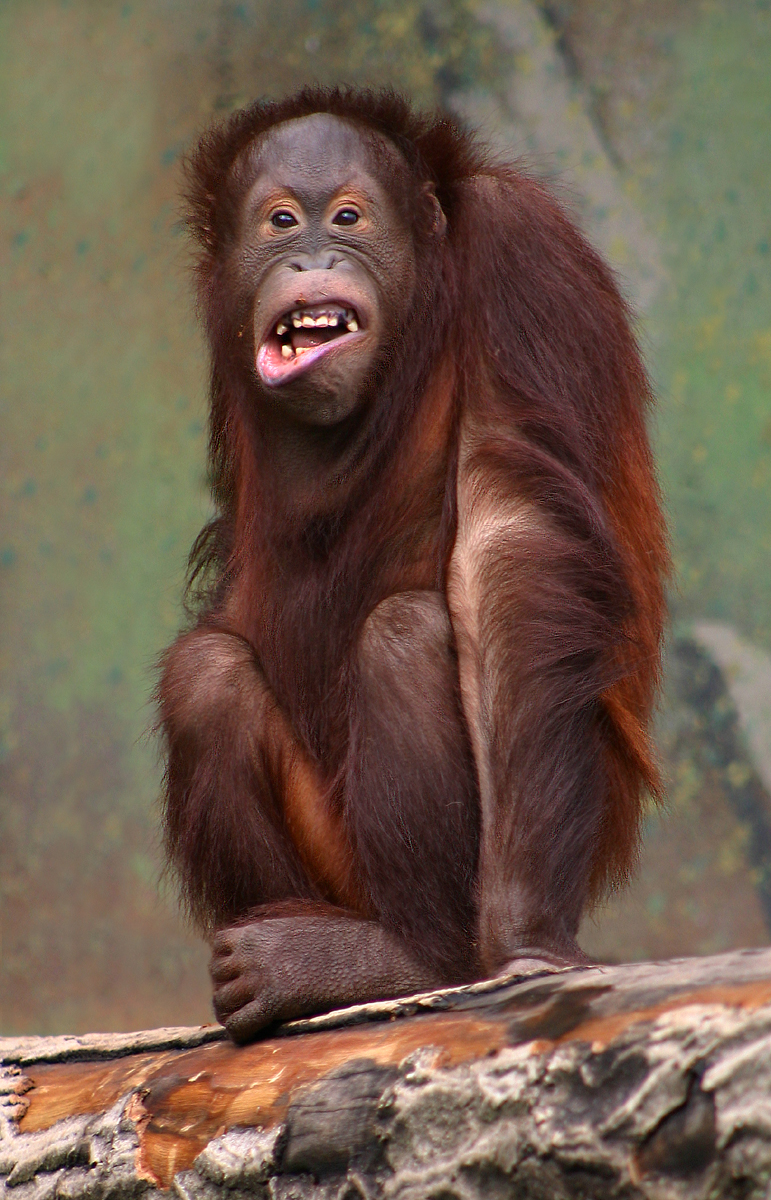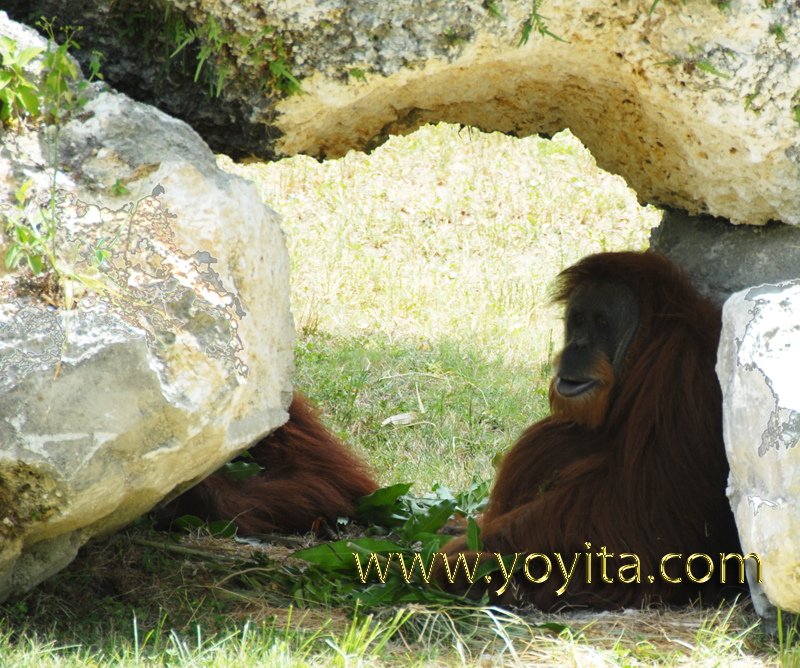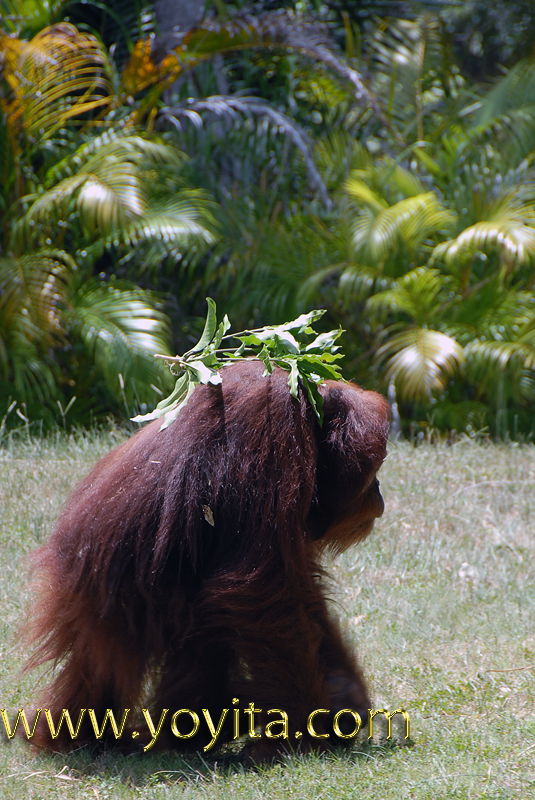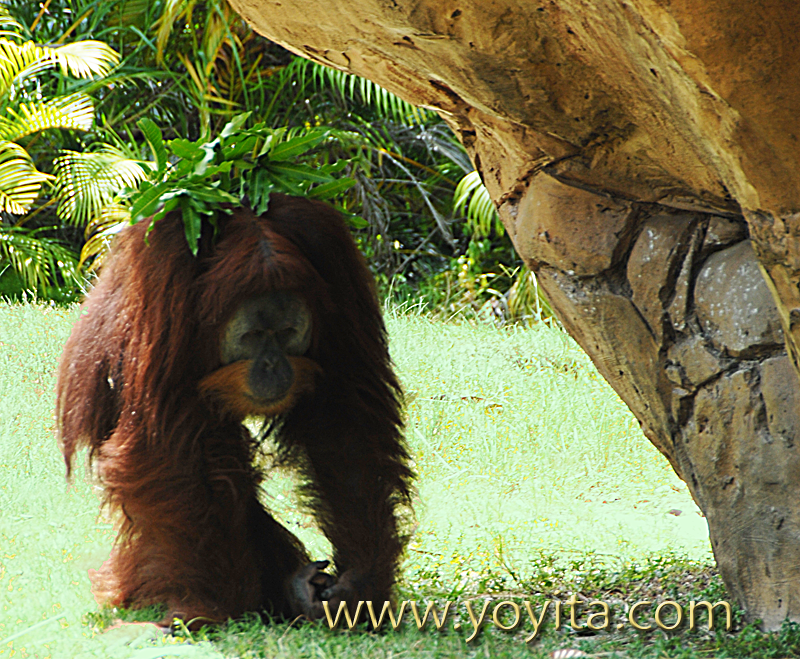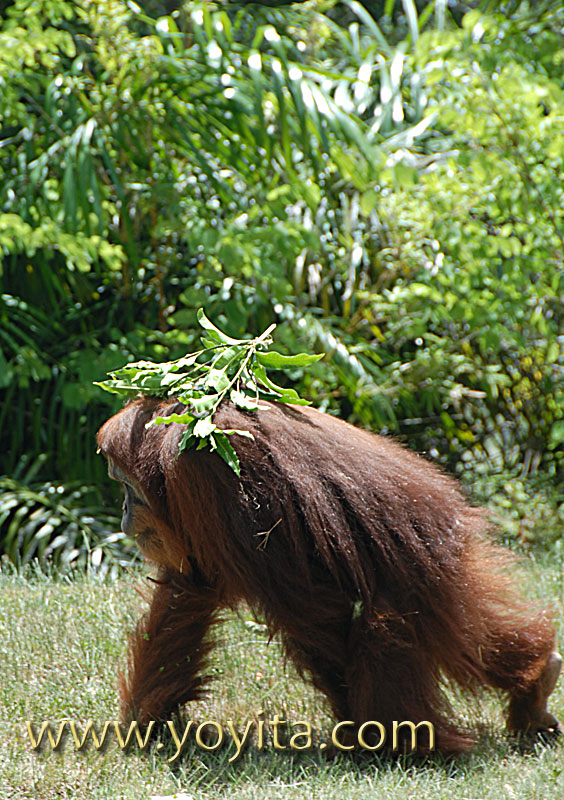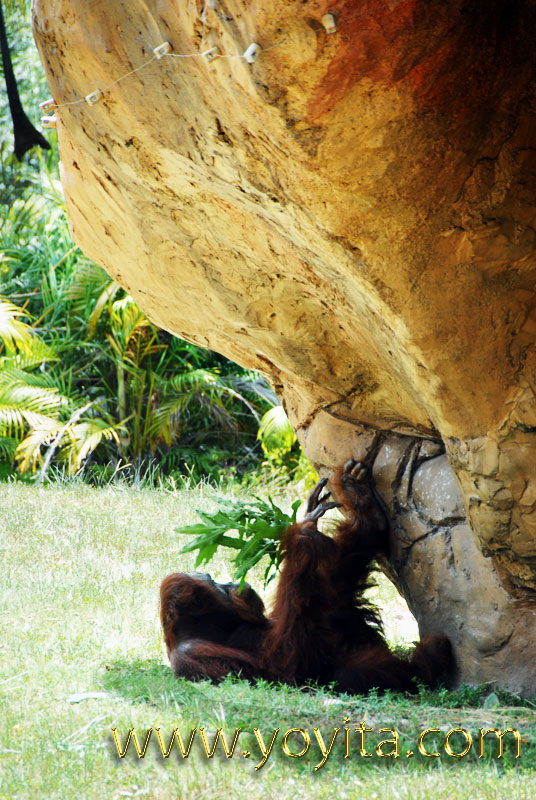Orangutan
Kingdom: Animalia
Phylum: Chordata
Class: Mammalia
Order: Primates
Family: Hominidae
Subfamily: Ponginae
Elliot, 1912
Genus: Pongo
Lacépède, 1799
Type species
Simia pygmaeus
Linnaeus, 1760
The word orangutan (also written orang-utan, orang utan and orangutang) is derived from the Malay and Indonesian words orang meaning "person" and hutan meaning "forest", thus "man of the forest". Orang Hutan is the common term in these two national languages, although local peoples may also refer to them by local languages. Maias and mawas are also used in Malay, but it is unclear if those words refer only to orangutans, or to all apes in general.
The word was first attested in English in 1691 in the form orang-outang, and variants with -ng instead of -n as in the Malay original are found in many languages. This spelling (and pronunciation) has remained in use in English up to the present, but has come to be regarded as incorrect by some. However, dictionaries such as the American Heritage Dictionary regard forms with -ng as acceptable variants.
The name of the genus, Pongo, comes from a 16th century account by Andrew Battell, an English sailor held prisoner by the Portuguese in "Angola" (probably somewhere near the mouth of the Congo River), which describes two anthropoid "monsters" named Pongo and Engeco. It is now believed that he was describing gorillas, but in the late 18th century it was believed that all great apes were orangutans; hence Lacépède's use of Pongo for the genus
Orangutan Species
* Genus Pongo
o Bornean Orangutan (Pongo pygmaeus)
+ Pongo pygmaeus pygmaeus - northwest populations
+ Pongo pygmaeus morio - northeast and east populations
+ Pongo pygmaeus wurmbii - southwest populations
o Sumatran Orangutan (P. abelii)
The populations on the two isolated islands were classified as subspecies until recently, when they were elevated to full specific level, and the three distinct populations on Borneo were elevated to subspecies. Some suggest that the subspecies wurmbii is conspecific with the Sumatra population (P. abelii). In that case, the resulting species, which would be distributed in Sumatra and southwestern Borneo, would be known as Pongo wurmbii, as that is the older name.
In addition, a fossil species, P. hooijeri, is known from Vietnam, and multiple fossil subspecies have been described from several parts of southeastern Asia. It is unclear if these belong to P. pygmaeus or P. abeli or, in fact, represent distinct species. |


